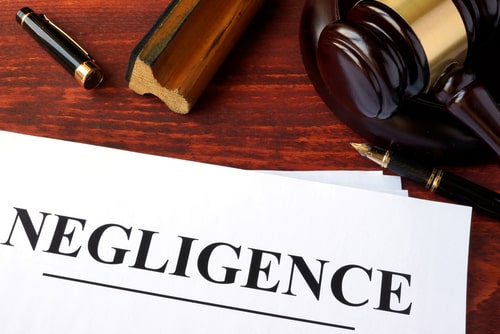5 Types of Negligence in a Personal Injury Claim
 Personal injury claims arise when individuals suffer harm or injuries due to the negligence of other people or parties. Negligence is a cornerstone concept in personal injury law, referring to the failure of a person or entity to act with reasonable care, leading to harm or injury to another party. There are five types of negligence commonly encountered in personal injury claims. It's crucial to contact a skilled Park Ridge personal injury lawyer if you believe you have suffered due to another person's negligence.
Personal injury claims arise when individuals suffer harm or injuries due to the negligence of other people or parties. Negligence is a cornerstone concept in personal injury law, referring to the failure of a person or entity to act with reasonable care, leading to harm or injury to another party. There are five types of negligence commonly encountered in personal injury claims. It's crucial to contact a skilled Park Ridge personal injury lawyer if you believe you have suffered due to another person's negligence.
Ordinary Negligence
Ordinary negligence is the most common type of negligence in personal injury cases. It occurs when a person or entity fails to exercise reasonable care, resulting in harm or injury to another person. This form of negligence can arise in various situations, such as slip and fall, car, or pedestrian accidents. To establish a claim of ordinary negligence, the injured party must demonstrate the following elements:
-
Duty of care: The at-fault party owed the injured party a legal duty of care.
-
Breach of duty: The at-fault party breached that duty by failing to act reasonably.
-
Causation: The breach of duty directly caused the injured party's injuries.
-
Damages: The injured party suffered actual harm or damages as a result.
Gross Negligence
Gross negligence represents a higher degree of carelessness or recklessness than ordinary negligence. It occurs when a person or entity completely disregards the safety and well-being of others, resulting in severe injuries or even fatalities.
Unlike ordinary negligence, gross negligence involves a conscious and willful disregard for the potential harm caused by one's actions or inactions. Personal injury claims involving gross negligence often result in punitive damages, which are intended to punish the negligent party and help prevent similar behavior in the future.
Comparative Negligence
Comparative negligence is a legal doctrine that considers the degree of fault of both the injured and the at-fault parties in determining the final compensation amount. Illinois follows the modified comparative negligence rule, where the injured party can only recover damages if their fault is not more than 50% responsible for the accident. If the injured party's fault exceeds 50%, they are barred from recovering any compensation.
Contributory Negligence
Contributory negligence is a legal doctrine that, in some states, completely bars an injured party from recovering any damages if they are found to have contributed to their injuries, regardless of how minimal their contribution may be. However, it's essential to note that not all states follow the contributory negligence rule. Many states, including Illinois, have adopted comparative negligence laws, which are generally more favorable to the injured party.
Vicarious Liability
Vicarious liability, also known as "imputed negligence," holds one party liable for the negligence of another. This legal concept commonly applies in employer-employee relationships or principal-agent relationships. In such cases, the negligent actions of an employee or agent may lead to liability for the employer or principal.
Were You Injured by a Negligent Party? Contact a Qualified Park Ridge Injury Lawyer Today
Suppose you find yourself involved in a personal injury claim. In that case, seeking the assistance of a qualified Park Ridge personal injury attorney from Quinn Law Group, LLC is advisable to protect your rights and maximize your chances of receiving fair compensation.
Call us today at 847-232-7180 or contact us online to schedule a no-obligation case review with an experienced Park Ridge personal injury lawyer at our office.
 847-232-7180
847-232-7180






